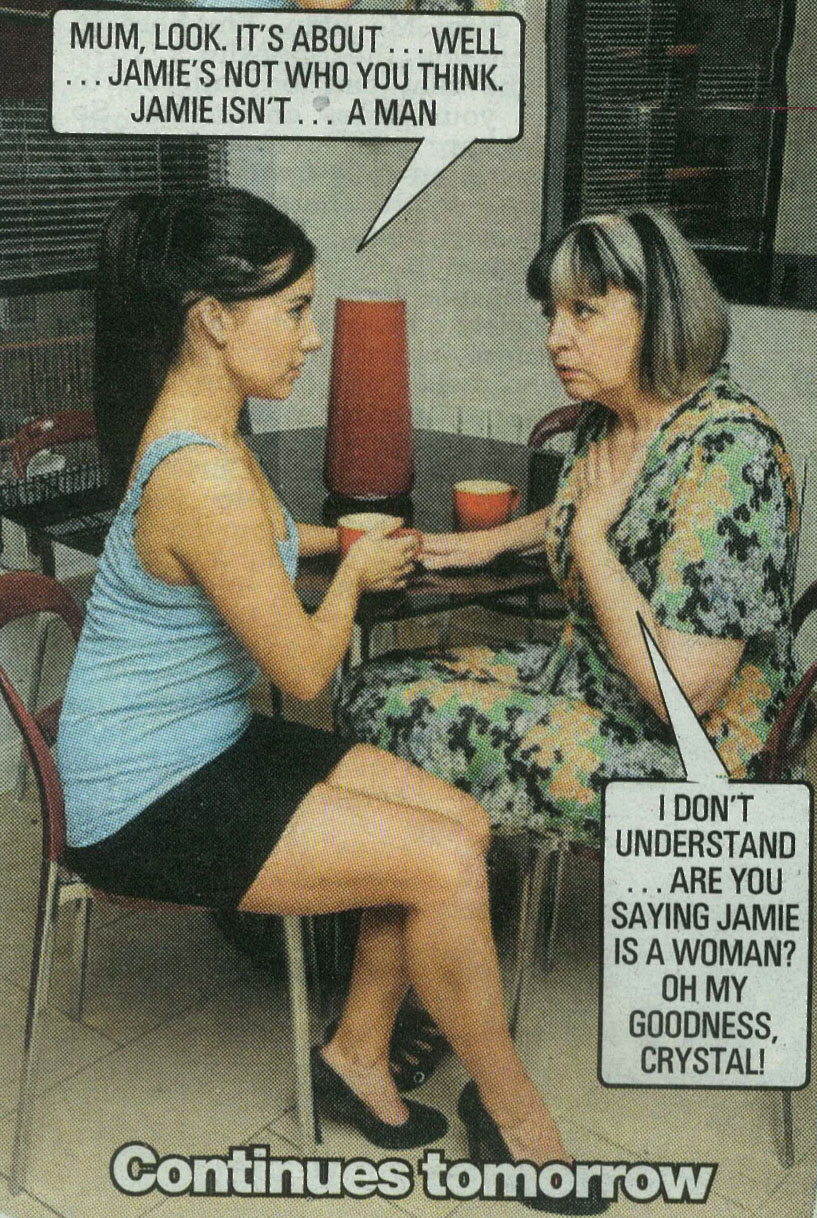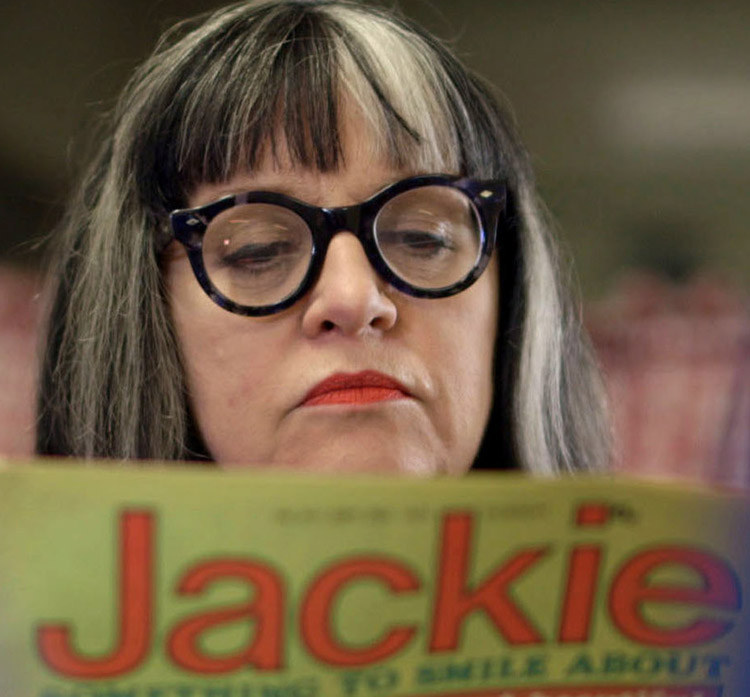Philippa Perry, 20 years a psychotherapist, was the dashing narrator of this history of 300 years of agony aunts (or uncles). Wearing a bright orange coat, she cycled between libraries, universities, newspaper and magazine offices, looking at centuries-old publications and interviewing contemporary writers. It was a fact-studded visual essay, but in spite of the raciness of its subject, oddly bland.
It all started in the 1690s with The Athenian Mercury, published for one of the new coffee houses which had sprung up in London. Its editor-in-chief John Dunton is given the accolade of inventing the advice column, replete with a dozen experts from The Athenian Society. It was a small élite who could afford such a publication, but the problem page was to reach a huge audience with the staggering proliferation of magazines and publications in the 19th century. These were columns which gave advice too on etiquette and practical problems – for example, would black lace gloves be an acceptable substitution for easily soiled and expensive white kid? Samuel Beaton (the husband and publisher of Mrs Beaton of cookery fame) published The Englishwoman's Domestic Magazine to handle such questions for the upwardly mobile and inwardly uncertain.
 His magazine published an extended correspondence on the great controversy as to whether to lace up or not, a contentious dispute about corsets and tight lacings terrifyingly illustrated with female hour-glass figures; one lady claimed she was in effect euphoric when tightly laced, others thought the practice unhealthy. This was followed by an even more sinister flood of questioning about the right and wrong ways to whip your children, with various methods of physical chastisement discussed and illustrated. And our cycling psychotherapist Philippa Perry pointed out the not-so-subtle pornographic undertones in much of this discussion, so popular in the 1870s that The Whipping of Girls was published as a separate supplement.
His magazine published an extended correspondence on the great controversy as to whether to lace up or not, a contentious dispute about corsets and tight lacings terrifyingly illustrated with female hour-glass figures; one lady claimed she was in effect euphoric when tightly laced, others thought the practice unhealthy. This was followed by an even more sinister flood of questioning about the right and wrong ways to whip your children, with various methods of physical chastisement discussed and illustrated. And our cycling psychotherapist Philippa Perry pointed out the not-so-subtle pornographic undertones in much of this discussion, so popular in the 1870s that The Whipping of Girls was published as a separate supplement.
Sex finally turned up overwhelmingly and overtly in the 1960s, with the Pill and the decriminalisation of abortion and homosexuality. Deirdre Sanders, the agony aunt of The Sun who's been more than 30 years in the job, has produced with her team in her demure Home Counties office 250 leaflets in answer to common questions, from abuse to addiction; the team copes with a thousand letters a week. Jay Rayner, son of Claire, Deirdre’s predecessor, showed us her files now in LSE’s Women’s Library with a huge range of answers to common problems.
 A reader, worried about his erection, sent in to illustrate his problem a wooden model of his penis to the wholly unfazed Mrs Rayner (she said it was just fine). It came in handy, so to speak; on a television panel discussion she cheerfully used it to demonstrate the best way to put on a condom. It was just a few years, but a very long way from the 1950s when you could not, if you were Evelyn Hone writing for Woman, even use the word "bottom".
A reader, worried about his erection, sent in to illustrate his problem a wooden model of his penis to the wholly unfazed Mrs Rayner (she said it was just fine). It came in handy, so to speak; on a television panel discussion she cheerfully used it to demonstrate the best way to put on a condom. It was just a few years, but a very long way from the 1950s when you could not, if you were Evelyn Hone writing for Woman, even use the word "bottom".
The most surreal sequence found our intrepid presenter acting out the part of the wife who has to cope with her daughter coming out as a lesbian on the one hand – complete with bedroom scene with her buxom girlfriend and bra and panty costume – and a baffled and angry husband and father on the other. This was for the popular Sun Photo Casebook. The female director of the Photo Book sequence told us that women read the story while the men like the pictures. Something for everybody, then.















Add comment